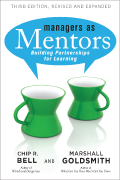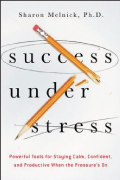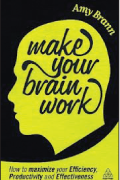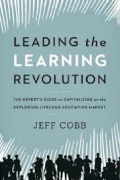TD Magazine Article
A Collaborative and Power-Free Partnership
A review of Managers as Mentors: Building Partnerships for Learning, Third Edition by Chip R. Bell and Marshall Goldsmith
Wed May 08 2013
Managers as Mentors: Building Partnerships for Learning, Third Edition

By Chip R. Bell and Marshall Goldsmith
(Berrett-Koehler, 256 pp., $22.95)
"Mentoring can be a powerful weapon useful in winning the war for talent. And both the flattening of organizations and the transformation of the role of boss have left many managers in an identity crisis.... This book offers a new perspective on roles and competencies for bosses as an alternative to what it has meant historically to be in charge."
Bell and Goldsmith team up to publish this third edition of Managers as Mentors, which is "not a warmed-over version of yesterday's dish ... rather, it is a completely new experience." With new chapters, case studies, and a mentor's tool kit, the book incorporates feedback from readers and practitioners for a fresh take on mentoring in the 21st century workplace.
The authors' mentoring philosophy is all about partnership—the power-free facilitation of learning and teaching through consultation and collaboration. Simply put, effective mentoring enables learning transfer. The authors believe this exchange happens best when mentors follow the SAGE model: surrender, accept, gift, and extend.
Surrendering is leveling the playing field by relinquishing any power in the mentoring relationship. Accepting means creating a safe haven for risk taking by embracing, rather than judging, the other. Gifting—the main event of mentoring—is bestowing something of value such as advice, feedback, and a passion for learning. Finally, extending involves nurturing the mentee's independence to produce a self-directed learner.
The book opens with a three-chapter section that explains the art of mentoring, narrates a solid mentoring relationship between fictional characters Tracy and Jack, and closes with a mentoring skills self-assessment. The remainder of the book unpacks the SAGE model's components, shares caveats for unique mentoring scenarios, and concludes with the mentoring tool kit complete with tips, frequently asked questions, and suggested reading. A real-life case study ends each chapter, reinforcing key concepts.
Although mentoring is a much-talked-about workforce development tool, I found that Managers as Mentors provided an inspiring perspective. In chapter 4, the authors describe mentorship as a magical dance in which the partners move in harmonious synergy. This "magic" only can take place when both partners remove their masks and commit to authenticity, vulnerability, and candor.
Such surrender of power allows trust to grow and creates an optimal environment for learning to flourish. Managers seeking to develop talented and loyal employees have much to benefit from this powerful model of a mentoring partnership.
Success Under Stress: Powerful Tools for Staying Calm, Confident, and Productive When the Pressure's On

Sharon Melnick
AMACOM, 250 pp., $17.95
The "new normal" of daily stress wears many people down, making it more difficult to stay afloat, let alone thrive and achieve. Written by a business psychologist, this book assists striving professionals in handling daily stresses, balancing their lives, and accomplishing career success. Melnick discusses ways to change your perspective, calm down and rejuvenate, and get to the root of problems to solve them for good. The book includes hundreds of quick tips and strategies that take three minutes or less to help decrease stress, boost energy, and increase effectiveness.
Make Your Brain Work: How to Maximize Your Efficiency, Productivity and Effectiveness

Amy Brann
Kogan Page, 312 pp., $19.95
In recent years, learning sciences has become a vital part of the training and development industry as researchers discover how people learn best. Make Your Brain Work uses neuroscience principles to teach readers to change the ways they work, thereby getting the most out of their brains. Brann attempts to improve workers' productivity, effectiveness, and efficiency by explaining these techniques in an easy-to-digest format. The goal of this book is to make your brain work for you, with stress, negative moods, and poor time management becoming a thing of the past. This title is a must-read for any professional who wants to maximize the power of his brain.
Leading the Learning Revolution: The Expert's Guide to Capitalizing on the Exploding Lifelong Education Market

Jeff Cobb
AMACOM, 240 pp., $29.95
Adult learning has become a far-reaching and profitable industry: Contributions to the field of training and development generate millions of dollars in revenue each year. But it also is an industry that is changing as a result of new generations in the workforce, fresh thought leaders, innovative technologies, and the volatile economy. Leading the Learning Revolution explains how one can enter the rewarding lifelong education market and be successful. To this end, Cobb shares industry strategies, interviews from experienced professionals, and real-life anecdotes. This book gives practitioners a variety of resources and tools to keep their organizations learning and growing effectively in the 21st century.
What's on Roger Kaufman's Bookshelf?
Paradigms: The Business of Discovering the Future by Joel Arthur Barker. This gives convincing cases in point about how people get locked into conventional wisdom, usually to their peril. This book gives encouragement to how important it is for all of us to widen our worldview and be proactive, not just reactive.
Management: Tasks, Responsibilities, Practices by Peter F. Drucker. Drucker provides leadership on how management should work to be successful. One of many observations of inspiration to me is "if you can't predict the future, create it"—and that is at the core of our approach to mega planning and needs assessment.
Direct Decision Therapy by Harold Greenwald. Greenwald was one of my inspirations to continue with mega planning, and he documents the vital importance of personal decisions and how people can change their payoffs and their lives. I was honored to work with him giving workshops on decision therapy and mega planning.
